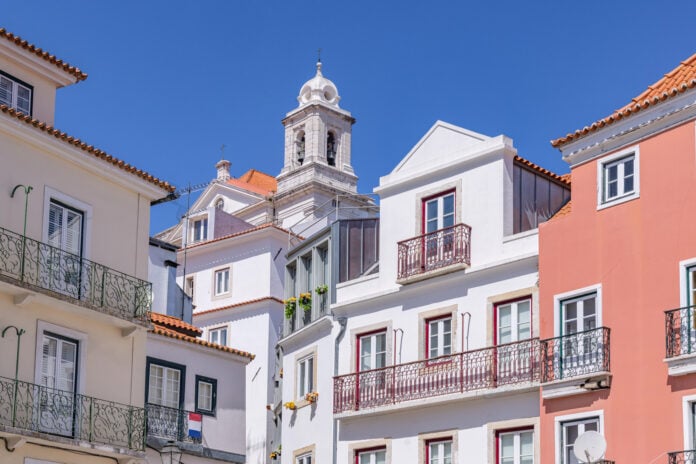Local Accommodation licenses, known in Portugal as AL (Alojamento Local) licenses, are permits that allow property owners to legally offer short term tourist rentals. These licenses apply to entire homes such as apartments or houses and also to individual rooms in some circumstances. Because short term rentals can reduce the supply of long term housing, the city of Lisbon regulates AL activity by monitoring how many AL units exist per residential dwelling in each area of the city. When the concentration becomes high, the area can be placed into a containment category where new licenses are limited or banned.
The 2019 AL Regulation – What the Rules Looked Like Before
Lisbon’s earlier regulation, approved in 2019, created two containment levels. Areas with more than 20 percent AL units compared to permanent homes were classified as zones of absolute containment and could not accept new AL licenses. Areas between 10 percent and 20 percent were considered relative containment zones where new AL registrations required special authorization from City Hall. Areas under 10 percent had no restrictions. These 2019 rules were designed to protect housing availability but were later criticized for allowing too much growth in short term rentals in central neighborhoods.
What AL Rules Have Changed in 2025
In November 2025, the city approved a new regulation intended to update the containment thresholds and reshape how Lisbon manages short term rentals. This new regulation is stricter than the 2019 version because it lowers the thresholds that define saturation. However, it is less strict than what had been proposed in the Municipal Housing Charter and in the draft regulation that residents reviewed during public consultation.
The most important change is that the thresholds for containment have been reduced. The absolute containment level is now set at 10 percent. Any parish or neighborhood with an AL ratio at or above 10 percent is blocked from receiving new AL registrations. Relative containment now applies to areas between 5 percent and 10 percent. These areas may receive new AL licenses only through exceptional authorization from City Hall. This system, although stricter than the 2019 structure, is more permissive than the 5 percent and 2.5 percent thresholds originally proposed by the PS, Livre, BE, and PCP political parties.
Another significant change is the introduction of a citywide containment rule. If Lisbon as a whole reaches an AL ratio of 10 percent or more, the entire municipality would become an absolute containment zone. Lisbon’s current level is around 7.2 percent. Under the stricter public consultation proposal, which used a 5 percent threshold, citywide containment would already have been triggered.
Current Status under the New Thresholds
Based on data from late 2025, Lisbon contains several parishes and neighborhoods that already fall within the new limits. Six parishes have AL ratios of 10 percent or more are already in absolute containment: Santa Maria Maior, Misericórdia, Santo António, São Vicente, Arroios, and Estrela. Avenidas Novas falls within relative containment.
Nine neighborhoods are classified as absolute containment. These include: Ajuda, Alcântara, Belém, Bom Sucesso, Parque das Nações, Picoas, São Bento, São Sebastião da Pedreira, and Sapadores. Thirteen more neighborhoods fall under relative containment. These areas will remain blocked or restricted unless their AL ratios fall below the new thresholds.
Other Changes Introduced
In addition to new containment levels, the 2025 regulation incorporates several other rules.
- One change allows room rentals in an owner’s primary residence in areas of relative containment provided that the home is a T2 or larger. This is intended to support residents who rely on supplementary income while preventing the conversion of entire homes to tourist use.
- Another rule prohibits exceptional AL authorizations for properties that were purchased at public auction.
- The city also restricts complementary commercial uses inside AL establishments, such as restaurants, shops, and service activities, especially within containment zones.
- The regulation also limits the transfer of AL registration titles in restricted areas except in circumstances defined under national law.
- Proposals from Chega that introduce stronger monitoring of mandatory liability insurance and require proof of activity for AL units were also added to the final regulation to prevent inactive properties from occupying space within the containment ratios.
What the 2025 Rules Mean Compared to 2019
Compared with the 2019 rules, the 2025 regulation represents a shift toward earlier intervention and broader geographic control. The reduction of the absolute threshold from 20 percent to 10 percent doubles the number of areas that fall into full restriction. The reduction of the relative containment threshold from 10 percent to 5 percent similarly expands the number of zones subject to special authorization.
Supporters argue that this strengthens the protection of housing and allows better management of short term rentals in overwhelmed neighborhoods. On the other hand, critics counter that the regulation remains looser than what the Municipal Housing Charter requires and that it permits AL levels far above the limits originally planned for the city. They also argue that the final proposal deviates from the version shown during public consultation and reduces commitments to housing protection during a time of significant pressure on residents.
Although contested, the regulation moves forward with political support from the PSD, CDS, IL, and Chega, and is expected to pass the Municipal Assembly. The new rules will shape the development of Lisbon’s AL sector by defining new thresholds, reinforcing monitoring, and adjusting the balance between tourism accommodation and residential housing throughout the city. The real question that remains is whether this will increase the housing supply for Lisbon residents in the long run.


